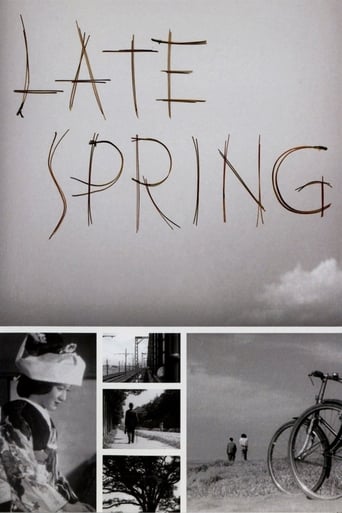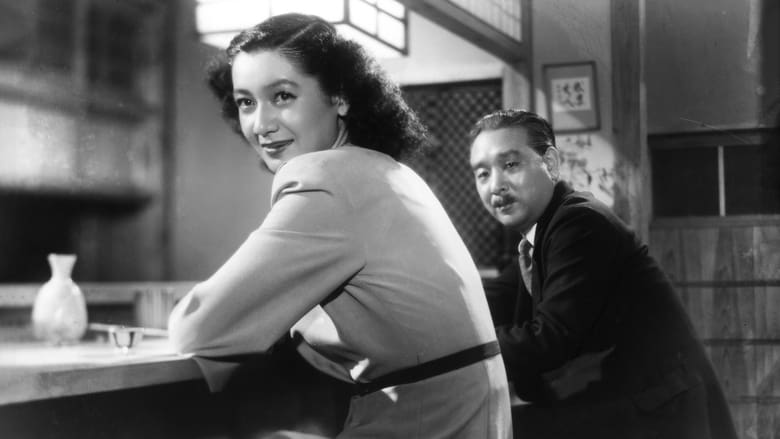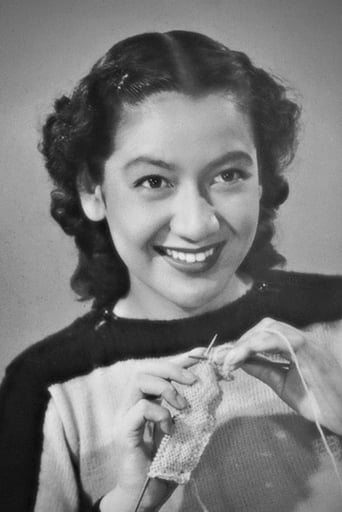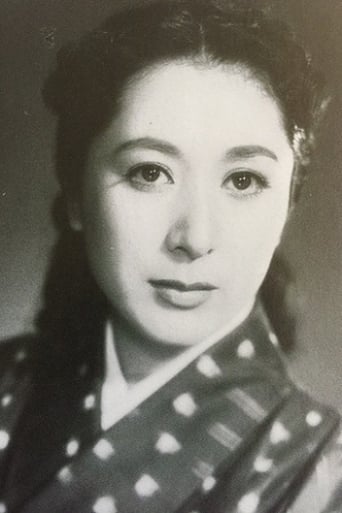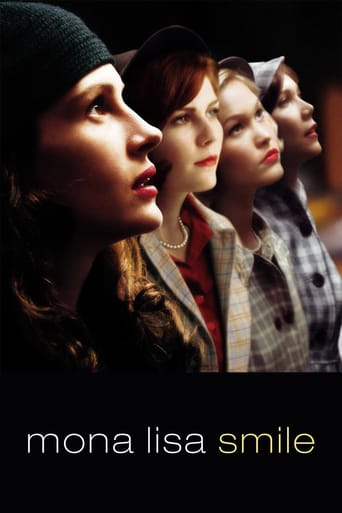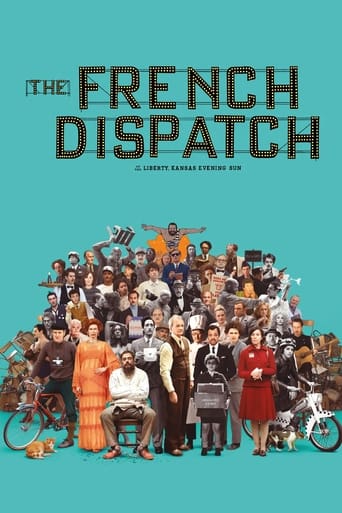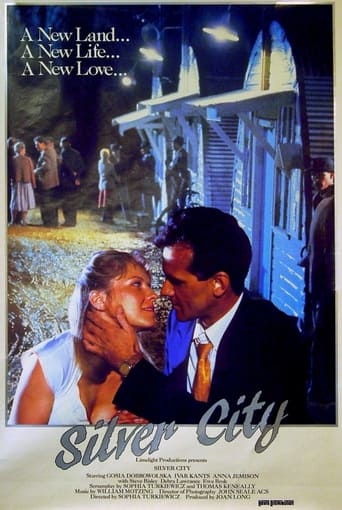Late Spring (1949)
Noriko is perfectly happy living at home with her widowed father, Shukichi, and has no plans to marry -- that is, until her aunt Masa convinces Shukichi that unless he marries off his 27-year-old daughter soon, she will likely remain alone for the rest of her life. When Noriko resists Masa's matchmaking, Shukichi is forced to deceive his daughter and sacrifice his own happiness to do what he believes is right.
Watch Trailer
Free Trial Channels
Cast


Similar titles
Reviews
That was an excellent one.
Good idea lost in the noise
It isn't all that great, actually. Really cheesy and very predicable of how certain scenes are gonna turn play out. However, I guess that's the charm of it all, because I would consider this one of my guilty pleasures.
The story, direction, characters, and writing/dialogue is akin to taking a tranquilizer shot to the neck, but everything else was so well done.
Thanks to tcm, I have lately become an appreciative fan of director Yasuhiro Ozu. While some viewers may find his films lacking in the physical action that they require, I find great beauty in his carefully constructed, framed scenes of quiet human interaction, which are enhanced by his frequent transitions to peaceful views of nature and of imposing buildings, such as the serene pagoda of Kyoto. These contrasting shots away from the human story allow me to reflect deeply about the events and feelings that the central characters, especially the devoted daughter Noriko, experience. Ozu's visually pleasing films allow us a unique opportunity to witness a very critical period in Japanese history as the nation recovers from a humiliating and devastating defeat, including a foreign occupation, in order to redefine itself as a peaceful, prosperous and democratic society, a truly impressive achievement in such a short period of time. Ozu very effectively delivers this era to viewers who would never otherwise experience it.An extra bonus of this film is another wonderful performance by Setsuko Hara as Noriko, the devoted daughter of her widowed father, played very intelligently by Chisu Ryu. With natural beauty and grace, Ms. Hara perfectly portrays Noriko during a very challenging struggle as she weighs an uncertain future against the very comfortable, even blissful, life that she has shared with her father. Haruko Sugimura, who appeared with both Hara and Ryu in Ozu's better known "Tokyo Story", once again plays a meddlesome and somewhat annoying relation, who pushes Noriko into marriage for the mere sake of strict social conformity. One may argue, on the other hand, that we all need an obnoxious aunt to motivate us into leaving our personal zones of comfort for new horizons, but at what price? How much misery must we endure to venture into an entirely different kind of existence? Who among us hasn't suffered through a very serious life change as Noriko does?For me, the ending was very powerful in its quiet understatement, but I won't say any more about it than that.
After having seen and loving Tokyo Story, a film which is widely considered to be not only master Japanese filmmaker Yasujiro Ozu's best film, but also one of the greatest films ever made, I was very eager to see more. Many consider Late Spring another of his absolute best works, and I can happily say that it most definitely met my very high expectations. As with Tokyo Story, this a deep, masterfully-executed and penetrating film examining family life in Japan and the societal and generational pressures which shape it.As with Tokyo Story, we enter this tale of father, Shukichi Somiya, and daughter, Noriko Somiya, in the middle. 27-year-old Noriko lives together with her father and they appear to be very close. Naturally, questions begin to arise in the mind of the viewer: where is Noriko's mother and why hasn't she ever married? Ozu does a fantastic job of coaxing these questions out in the film's early stages and gives us hints at what has transpired, but never spoon- feeds us by explicitly explaining the backstory. We learn that Noriko had been seriously ill at one point during a period of war and hardship, but has since recovered. Her mother is a mystery for much of the film, but it slowly becomes clear that she has died and that Shukichi is a widower. With this context, the film examines the father-daughter relationship between Noriko and Shukichi and the pressures on them both to have Noriko finally marry and "leave the nest", so to speak.The strength of this film (and Tokyo Story alike) is how subtly and effectively it tells this story. The screenplay and pacing of the film are phenomenal in slowly and carefully peeling back the layers of the family dynamic. Throughout the film we question the actions and underlying motivations of each of the characters. By the end, the full vision snaps into focus and we are left with a melancholy ending that really sneaks up and packs quite an emotional punch.Let's begin with Noriko. For the length of the movie she is adamantly against marriage, especially re-marriage. As the details of the backstory filter in, her reasoning begins to become clear. Noriko lost her mother which has obviously affected her very much. As a result, she is very close with her father and wary of leaving him behind. Her mother's death obviously must have been very hard for her father as well, and she references the fact that he needs her to take care of him. She feels that she must be there for him because she fears he may be lonely if she leaves and won't be able to cope as a widower. She is also understandably protective of her father – she is afraid to lose him like she did her mother. Thus, she can't bear the thought of him ever remarrying which, in her mind, could potentially jeopardize their relationship. As the film progresses though, pressures on Noriko to get married come from all sides – her aunt, father, and best friend (and ironically, divorcée) all urging her that she must take this long overdue and necessary step. To her, the relationship she has with her father is more than enough and brings her contentment. However, she is made to feel like she is being selfish in staying home with him, especially when it is suggested that he wishes to remarry. Thus, she eventually gives into these pressures and marries at the end of the film, but is clearly devastated and unhappy with her choice.Shukichi can be analyzed in the same way. He seems to be very happy with his daughter home and with the lives they are leading together. It isn't until his sister, Masa, makes the observation that Noriko has gone far too long without marrying, that he begins to question things. He too begins to pressure Noriko that she must marry, and begins to insinuate that he wishes to remarry as well and that she need not worry about taking care of him. Many conversations seem to have taken place between Shukichi and Masa off-screen, as at the end of the movie it is revealed that Shukichi's plans for remarriage were fabricated by both he and Masa in order to influence Noriko in her decision. Shukuchi feigns happiness at Noriko's wedding (as does Noriko quite poorly), but at the end of the film we see him return home to his empty house in a devastating scene where his true distress becomes apparent. In this moment, the movie strikes a powerful note as we realize neither Noriko nor Shukichi wanted for this marriage to happen and neither are happy with the outcome. They were both made to feel selfish by others around them – Shukichi for keeping Noriko home so long with him and Noriko for keeping her father from remarrying. In reality, neither of these two things are true, but the characters are made to believe them through the pressures of their family and friends. Now, they find themselves in places that neither of them wanted or needed, but that society has deemed "correct" for them. It's a poignant and thoughtful tale which is marvelously achieved by the strength of spectacular direction and acting. Setsuko Hara is absolutely radiant and Noriko. She shines in every single scene and has such an effortless quality to her acting that makes her every move feel completely natural. Chishû Ryû as Shukichi is equally brilliant as a caring father who is conflicted between keeping his daughter by his side and shooing her out the door to a more socially acceptable life. And everything of course is tied together by Ozu's absolutely masterful direction which makes for a film that is deep, thought-provoking, and emotionally resonant.
The Japanese people are gentle, nice and polite and plentiful of good feelings. They respect the best values in family and society. Ties between children and parents are very deep. This movie shows that atmosphere in a remarkable way through beautiful and delicate scenes of sociability and intimacy and some dialogues of restrained emotion. A daughter who has already passed the age in which she should have married, lives with her widowed father taking care of him. But her father and her aunt keep pressing her for getting married soon because they think that will be for her own happiness and because socially she should already have done that. Particularly the aunt is engaged in getting her a fiancé. She is however very reluctant on that matter since she feels very happy living with his father and taking care of him. She ends up by yielding to his father's entreaties feeling very sorrowful although she tries to seem cheerful at the idea. Her father even recognizes he would like to have his daughter with him but feels that children must go and leave their families when they become adults. The movie ends on the wedding day (whose ceremony we don't watch not even we ever see the bridegroom since this is not important by the movie's goals). There are two scenes particularly dramatic though in very restrained attitudes. First while the bride is getting dressed in typical Japanese attire for the wedding ceremony not showing any signs of cheerfulness and the last scene when the father comes back home alone and sits down feeling silently his loneliness making us feel deeply the girl's absence where she was so lively before. The movie viewer feels very deeply what goes in their minds and hearts while watching these scenes. The performers know well to communicate their feelings to us without great explosive dramatic scenes. They do a great job at that. This movie was classified recently by a team of British critics as one of the 100 best movies ever made.
"Late Spring" is Yasujiro Ozu's stunningly poignant portrait of a 27-year-old daughter who lives with her 56-year old father in post-World War II Japan. A film with a deeper meaning than its simple story implies, "Late Spring" is like the neorealist version of Japanese films, in that it tells a story larger than life with few but memorable characters.Another spring comes to a little town not far outside of Tokyo, Japan. At the same time another woman is getting married and Ozu opens up with a marriage ritual with beautiful women garnered in kimonos as the ceremony unfolds. Outside the wind gently blows and sways the leaves and trees back and forth. The flowers are in bloom. Ozu makes it clear that marriage is not just a ritual but a tradition like the seasons.The central character is Noriko, a 27-year old unmarried woman who lives by her father's side. She knows him just as well as he knows her, and Ozu creates a humble home environment through their natural interactions. "I'm home!" Noriko will announce. "Have you had anything to eat yet, Father?" Noriko, we discover, not only feeds and cleans and cares for her father but occupies a very important hole in his life. This is more than a father and daughter relationship but one that thrives without a mother figure. Ozu never reveals the cause of her death, but this is a daughter without a mother and a husband without a wife. For that, they are inexplicably bound.Noriko's Auntie always attends the nuptials and sees it as the time for Noriko to be married. She cannot be blamed for this. The Aunt, a widow herself, is a woman bound by tradition and thinks if her niece avoids marriage any longer her chance of a fruitful, wholesome life shall be tainted (hence, late spring). The Aunt almost urgently wants Noriko to marry. For Shukichi, the father, letting go is a little harder.Noriko is unmarried but not without a social life. On weekly commutes to Tokyo she meets up with Mr. Onodera, a family friend. Often, they'll window shop together and finish with shots of sake while Noriko gently but wittily quips about Onodera's second marriage. Noriko is also friends with Mr. Hattori, her father's young work assistant. Hattori could be a potential husband, and they get along fine biking down the beach together, except Hattori is engaged to be married and that's the misery of it.Lastly, there's Noriko's friend, Aya, who came from the same educational upbringing but married earlier in life. Aya has experience which is not so much an advantage over Noriko but something more to talk about. "I don't want to get married," Noriko says and Aya is appalled. Aya argues her divorce only made her stronger. Noriko sees this as a weakening of the human spirit.Setsuko Hara, who plays Noriko, is not only a beautiful woman but a fine actress. She smiles ear-to-ear throughout the picture and it's amazing that somebody could look so happy. Only when there's talk of marriage does that smile begin to dissipate and Noriko ruefully laments she'd rather have an eternity with her father. "You don't find happiness," her father says. "You create it." Marriage is unique because for every bond that's joined another is broken. "Late Spring" testifies to that, and it tells it so well, without superfluous sentiment, that the result is a picture so compelling it touches the deepest corners of our hearts.

